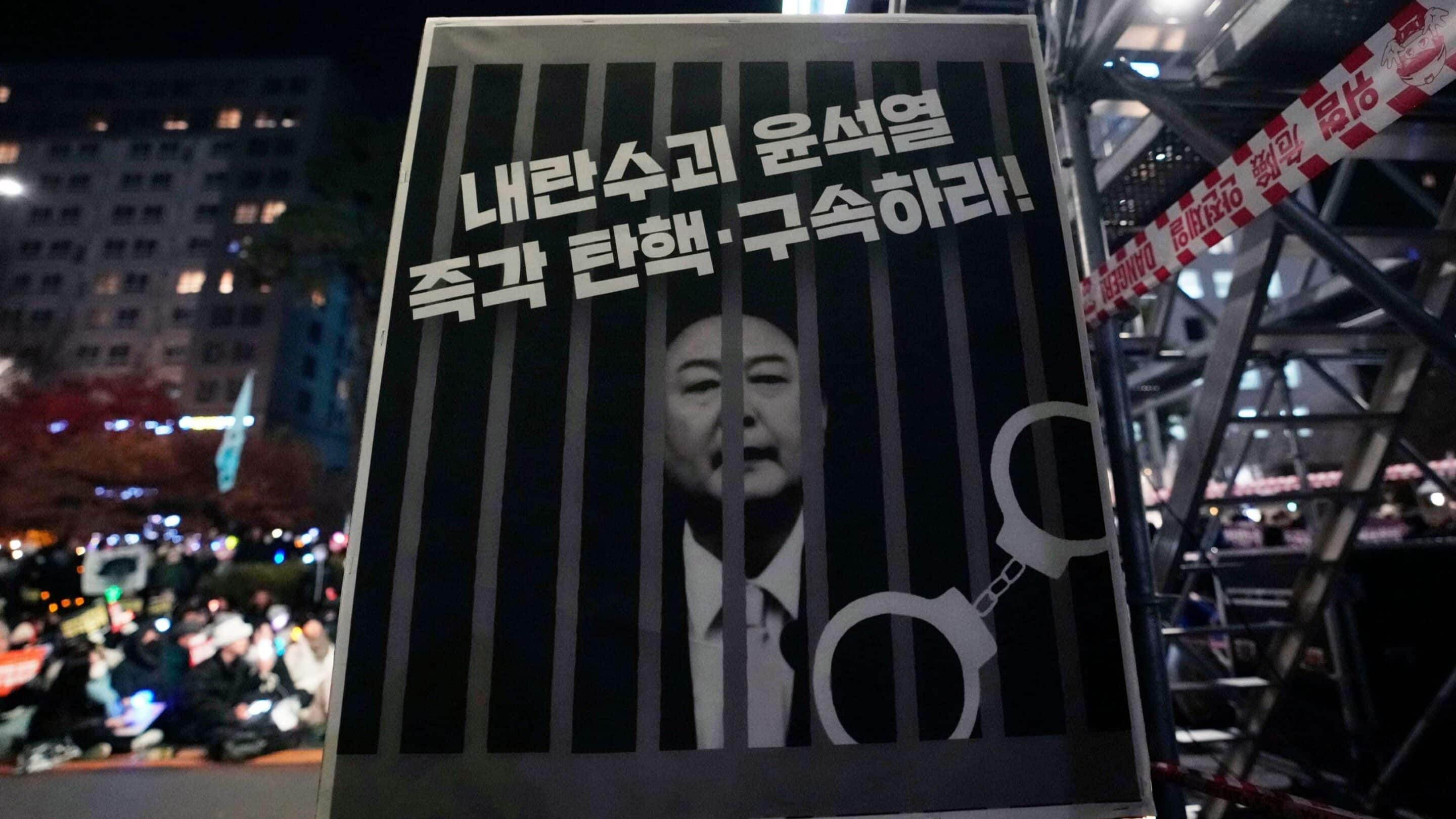On December 3 the President of South Korea Yoon Suk Yeol launched a coup against the opposition ruled National Assembly. He declared martial law and ordered military special forces and police units to block law makers from assembling.
But the assembly members did win the race:
Just 150 minutes after the presidential announcement 191 of the 300 members of the National Assembly voted to immediately end the martial law status. Troops and police entered the parliament but the vote against martial law had already taken place.
A lot has happened since. President Yoon’s defense minister and high school buddy Kim Yong-hyun has been arrested for initiating and taking part in the martial law scheme:
Kim has been accused of recommending martial law to Yoon and sending troops to the National Assembly to block lawmakers from voting on it. Enough lawmakers eventually managed to enter a parliament chamber and unanimously rejected Yoon’s decree, forcing the Cabinet to lift it before daybreak on Dec. 4.
Kim has since tried to commit suicide.
Some of the military commanders who were ordered to implement the martial law have since talked to investigators. They revealed that the martial law scheme had been part of a larger, even more crazy plan which could have led to war with North Korea:
The Defense Minister’s original plan was to provoke an attack from North Korea, then use that as an excuse to declare martial law. To that end, South Korean military flew several drones over the Pyongyang sky, spraying propaganda fliers. North Korea did not attack, however.
…
Initial preparation for the coup began as far back as July 2023, as the military compiled the reference materials for operations under a martial law situation and produced a manual around that time.
Last Saturday President Yoon’s People Power Party had blocked an attempt by the National Assembly to impeach President Yoon. But as more details of the attempted coup came out over the week the pressure from the general public on the party increased. Today another vote on impeachment was held. It received the necessary two third majority:
South Korea’s parliament voted to impeach President Yoon Suk Yeol on Saturday in an extraordinary rebuke that came about after his own ruling party turned on him following his refusal to resign over his short-lived martial law attempt.
It is the second time in less than a decade that a South Korean leader has faced impeachment proceedings in office and means Yoon is suspended from exercising his powers until the decision is finally adjudicated by the country’s Constitutional Court.
Following the vote, which sparked jubilation among protesters outside parliament, Yoon conceded that he will “stop temporarily for now, but the journey to the future that I’ve walked with the people for the past two years should not stop.”
“I will not give up,” he said in a statement shared by the country’s presidential office.
Yoon will try to convince the Constitutional Court that he is not guilty of insurrection and should not be impeached.
The court has a number of vacancies. Currently only six judges are available and to impeach Yoon all six would have to agree.
Yoon will however have difficulties to claim that he is innocent:
Senior government officials have testified at various government hearings over the last week revealing some extraordinary details about the night of the martial law order.
Special Warfare Command Commander Kwak Jong-geun testified that he received a direct order from President Yoon to break the doors of the National Assembly and drag out the lawmakers, but he did not comply.
Kwak Jong-geun did not comply with Yoon’s order because it was evidently illegal. Martial law does not include the power to prevent the national assembly from fulfilling its constitutional duty. It is something that Yoon, as a former prosecutor, will surely have known.
Any constitutional court ruling in favor of Yoon would thus be purely political and in contradiction to the law.
The South Korean public would, rightly, go berserk over it.
Reprinted with permission from Moon of Alabama.

